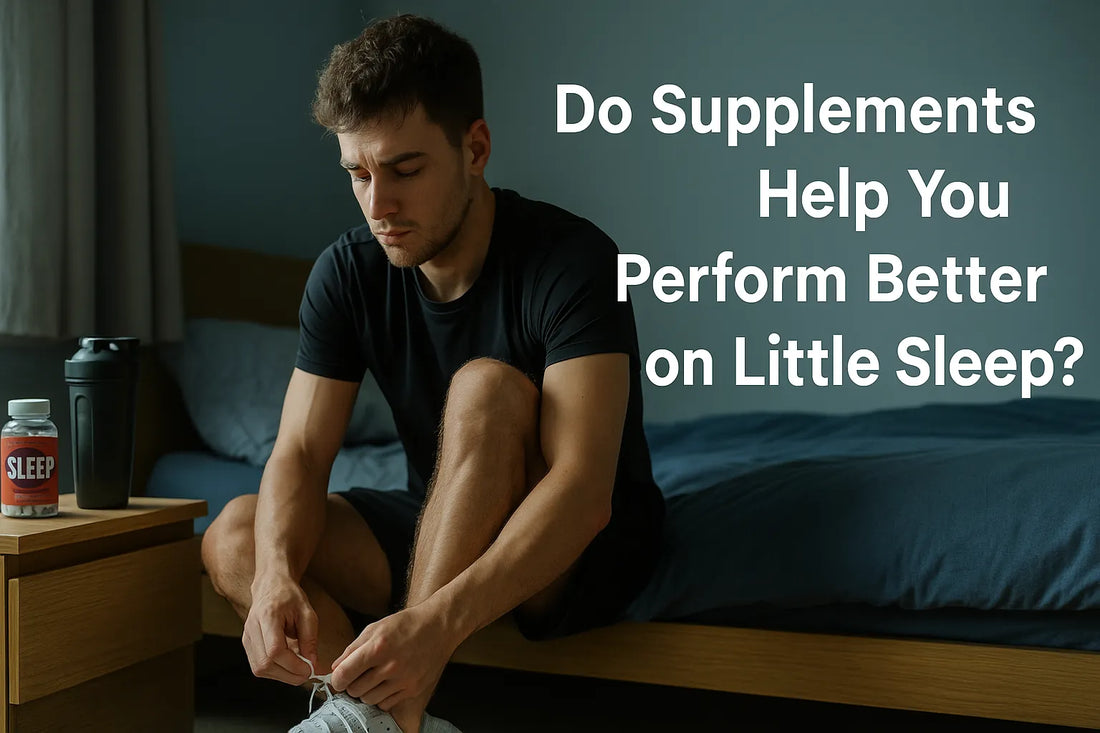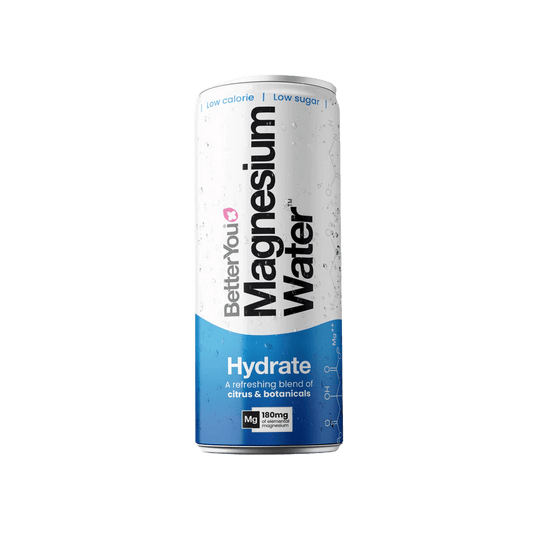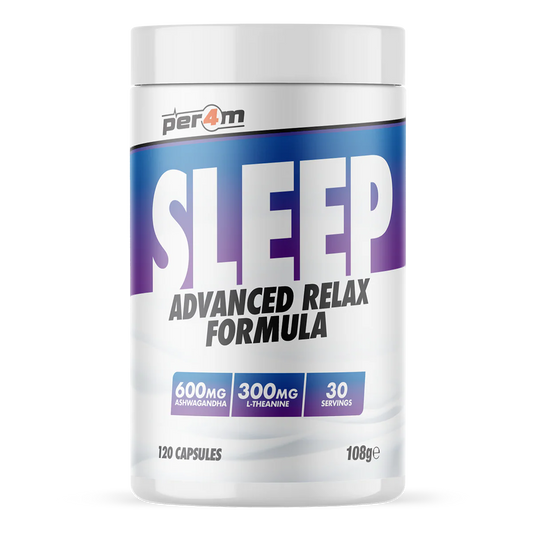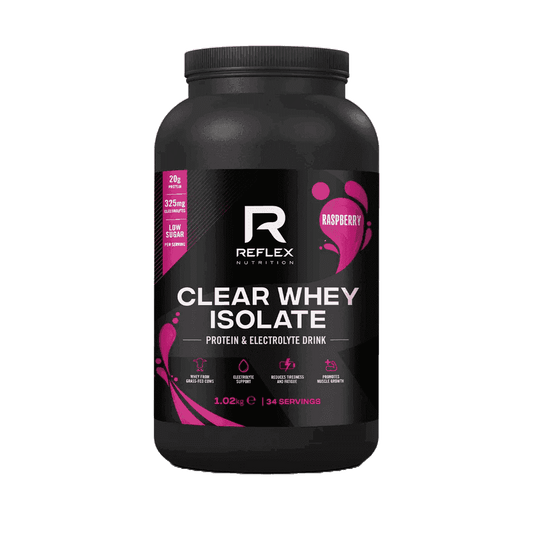Introduction: The New Age of Running on Empty
There’s a strange paradox in modern fitness culture: we know sleep is the foundation of recovery, yet so many of us live like it’s optional. Whether it’s late-night studying, overtime shifts, a new baby, or simply the lure of Netflix and TikTok, sleep deprivation is a shared experience. But here’s the kicker—many lifters still expect to perform at their best in the gym after just four or five hours of rest.
The obvious truth is that lack of sleep diminishes muscle recovery, power output, and motivation. Yet, the supplement industry has crept in with an offer: maybe you can’t replace sleep, but can you hack around it? Can certain supplements help you focus, recover, and even build muscle when sleep is scarce?
This isn’t just a “can supplements replace sleep?” question (spoiler: they can’t). It’s about nuance. Some products help your body tolerate stress better, others can mask fatigue, and a few play a real role in mitigating the damage of those sleepless nights. Let’s break it down—science, practicality, and the supplements that could keep you functioning until you finally crash into bed.

1. What Supplements Are Good for Lack of Sleep?
When you’re short on sleep, your body is essentially running on low battery. Energy metabolism, cognitive sharpness, muscle glycogen replenishment, and hormonal balance all take a hit. Supplements won’t recharge you like a solid eight hours will, but certain ones can help bridge the gap.
Caffeine + L-theanine: The classic fatigue mask. Caffeine alone sharpens focus but often leaves you wired and jittery—especially on low sleep. L-theanine (an amino acid found in tea) tempers the stimulation, producing calm but alert energy. Many smart pre-workouts and nootropic stacks now pair them together.
Creatine Monohydrate: Famous for strength and power, but overlooked for its cognitive benefits. Research shows creatine supplementation supports mental performance in sleep-deprived individuals, making it one of the rare “double hitters”—good for brain and muscle. That makes Naughty Boy Prime Creatine a standout choice for gym-goers who still need to hit their lifts after a bad night’s rest.
Magnesium: A mineral crucial for nerve transmission, muscle function, and sleep quality. When you’re underslept, magnesium helps reduce the risk of cramps and calms an overactive nervous system. BetterYou Magnesium Water works both as hydration and mineral support, making it a subtle but effective ally.
Protein + Amino Acids: Sleep-deprived bodies still need amino acids for repair. Protein powders like Per4m Whey Hydrate or refreshing options like Reflex Nutrition Clear Whey provide convenient fuel for recovery, especially if appetite dips when you’re tired.
2. What Is the Most Powerful Supplement for Sleep?
Ironically, when you’re not sleeping enough, your best bet is still something that helps you sleep better later. The “most powerful” supplement in this space isn’t a stimulant—it’s one that addresses sleep quality directly.
Per4m Sleep (120 Caps) is a targeted recovery product that blends sleep-promoting compounds like 5-HTP, magnesium, and herbal extracts. It doesn’t just knock you out—it’s formulated to improve sleep depth and recovery quality. On nights where you can get a full rest window, this type of supplement ensures you maximise it.
Beyond that, melatonin is sometimes discussed, but it’s more useful for circadian rhythm issues (like jet lag) than regular gym recovery.
The lesson: if you can’t always control sleep quantity, you should at least control sleep quality. That makes sleep-specific supplements arguably the most powerful recovery enhancers in your arsenal.
3. How Much Magnesium Should I Take for Sleep?
The optimal dose varies, but research usually points to 200–400mg per day for supporting sleep and muscle function. Too little, and you won’t notice much. Too much, and you risk digestive upset.
Liquid delivery (like magnesium-infused hydration waters) has an advantage—it’s easy to dose consistently and pairs with electrolytes like potassium and sodium, which are also essential for performance.
One smart strategy: take magnesium in the evening. Combined with a protein shake (e.g., Per4m Whey Hydrate) or recovery-focused supplement (Per4m Sleep), it doubles up on repair and calmness before bed.
Think of magnesium as your “silent recovery partner.” It won’t give the buzz of caffeine or the immediate hit of creatine, but over time, it balances the system that sleep deprivation destabilises.
4. What Type of Magnesium Is Best for Sleep?
Not all magnesium is created equal. The form matters:
-
Magnesium Glycinate → The gold standard for sleep and relaxation. It’s well-absorbed and has calming properties.
-
Magnesium Citrate → Great for absorption but can have a mild laxative effect—better for digestion than for sleep.
-
Magnesium Malate → A good option for energy metabolism and muscle soreness.
-
Magnesium Sulfate (Epsom salts) → Popular in baths for relaxation, though less relevant for supplementation.
For everyday use, magnesium glycinate or blends (as found in Per4m Sleep) are ideal for improving sleep depth. For hydration and daytime mineral replenishment, magnesium in water form (BetterYou Magnesium Water) is practical and refreshing.
The takeaway: if your sleep debt is building, using the right type of magnesium can make the difference between tossing and turning—or getting genuinely restorative rest.

5. Does Magnesium Help You Sleep?
Yes—and it does more than that. Magnesium’s role in sleep is underrated. It regulates neurotransmitters (like GABA) that calm the nervous system, lowers cortisol, and improves sleep onset. For athletes, magnesium deficiency is common because intense training depletes it through sweat.
A tired, twitchy nervous system after little sleep often leads to poor gym sessions. Supplementing with magnesium can reduce this “wired but tired” feeling. BetterYou Magnesium Water is a practical option since it combines hydration with magnesium replenishment, tackling two sleep-deprivation problems at once: mineral loss and fatigue.
The beauty of magnesium is in its versatility. Even if you don’t get the perfect 8 hours, you’ll sleep deeper, recover more effectively, and feel calmer the next day.
Do Supplements Help You Perform Better on Little Sleep? (Part 2)
6. Which Vitamin Deficiency Causes Insomnia?
Sleep problems often get blamed on stress or overtraining, but micronutrient deficiencies are another silent culprit. Several vitamins and minerals directly influence sleep quality, and a lack of them can leave you tossing and turning even when you’re exhausted.
-
Vitamin D: Low vitamin D is strongly linked to poor sleep quality and shorter duration. The sunshine vitamin regulates melatonin, the hormone that governs your sleep–wake cycle. For gym-goers in the UK (where grey skies dominate), deficiency is common, especially in winter months.
-
Vitamin B12: A deficiency here can disrupt circadian rhythms, making it harder to fall asleep and wake at consistent times.
-
Magnesium: As discussed earlier, low magnesium levels can increase anxiety and nervous system overactivity—two major enemies of deep sleep.
This is where a daily multivitamin tailored for active individuals comes in handy. For men in their 20s or 30s, it covers nutritional gaps that could otherwise derail sleep and recovery. When paired with recovery-focused formulas like Per4m Sleep, you essentially give your body the “building blocks” it needs to reset.
So, if you’re struggling with both fatigue and insomnia, it might not be your training—it could be a subtle deficiency.
7. Does Vitamin D Help You Sleep?
Yes, and it goes beyond just sleep—it improves your overall day-to-day recovery rhythm. Vitamin D is involved in serotonin production, immune function, and muscle repair, all of which indirectly improve sleep quality.
For athletes, vitamin D deficiency has been tied to lower testosterone levels, weaker bones, and even slower muscle repair. Combine that with the fact that many people spend most of their days indoors, and it’s clear why low D levels are so widespread.
Adding a vitamin D supplement, or simply ensuring your multivitamin provides an adequate dose (around 1,000–2,000 IU daily, depending on blood levels), can help regulate your circadian rhythm. More stable rhythms mean falling asleep faster, waking more refreshed, and handling stress better—even when sleep duration is limited.
Pairing vitamin D with protein recovery (like Reflex Nutrition Clear Whey Protein post-workout) creates a powerful one-two punch: nutrition for muscles, regulation for hormones.
8. Can Too Much Vitamin D Cause Sleeplessness?
Interestingly, while deficiency can disrupt sleep, excessive vitamin D intake can also backfire. Over-supplementation may increase calcium levels in the blood, which interferes with melatonin and leads to restlessness or insomnia.
The lesson: balance matters. More is not always better. For most, moderate daily doses (1,000–2,000 IU) are safe and effective. Mega-dosing (5,000+ IU) without medical supervision is unnecessary and risky.
This highlights the importance of choosing high-quality supplements with transparent dosing. Products aimed at gym recovery often keep vitamin levels within optimal ranges, avoiding the pitfalls of overdosing.
It’s a reminder that supplementing smartly—not excessively—creates the foundation for sustainable gym progress.
9. What Vitamins Should You Avoid Taking at Night?
When you’re sleep-deprived, timing your supplements becomes just as important as what you take. Some vitamins and minerals enhance rest, while others interfere with it.
Best avoided before bed:
-
Vitamin B12: Acts as an energy booster. Taking it late may keep you wired when you need to wind down.
-
Vitamin C: Stimulates adrenal hormones; often better in the morning.
-
Pre-workouts (with caffeine): This one’s obvious, but worth repeating. Even “low stim” pre-workouts can interfere with sleep.
Best taken before bed:
-
Magnesium: Calming effect on the nervous system.
-
Zinc: Supports testosterone production overnight.
-
Recovery blends (like Per4m Sleep): Designed specifically for night-time repair.
For athletes who rely on supplements, this timing strategy is crucial. It’s not just about swallowing capsules—it’s about aligning your intake with your circadian biology.
10. Why Do I Wake Up at 2 a.m. and Can’t Go Back to Sleep?
This is one of the most common—and frustrating—sleep complaints. It often comes down to three factors:
-
Blood Sugar Fluctuations: A sharp drop in blood glucose overnight can wake you up. Having a protein-based evening snack (like a couple of Protein Ball Co Keto Balls) helps stabilise energy and prevent 2 a.m. crashes.
-
Stress Hormones (Cortisol): If stress is high, your body may produce cortisol at the wrong time, pulling you out of deep sleep. Magnesium and sleep supplements can help calm this down.
-
Electrolyte Imbalance: Low magnesium or potassium can trigger night-time muscle cramps, which disturb rest. Hydration support like BetterYou Magnesium Water addresses this root cause.
Instead of panicking when it happens, think prevention: stabilise nutrition before bed, prioritise magnesium intake, and manage stress levels. When paired with high-quality protein recovery (e.g., Per4m Whey Hydrate or USN Muscle Fuel Anabolic), you ensure both muscles and sleep cycles get the nutrients they need.
11. Can You Gym on No Sleep?
Here’s the tough truth: you can, but should you? Training after a completely sleepless night is one of the worst recovery scenarios. Cortisol skyrockets, testosterone plummets, reaction time slows, and injury risk doubles.
That said, life isn’t perfect. Sometimes you’ve got a 6 a.m. session after a brutal night of insomnia. In those cases, supplements can soften the blow.
-
Pre-workout with caffeine: Provides the alertness to simply function.
-
Creatine (Naughty Boy Prime Creatine): Helps maintain performance even when your nervous system is dragging.
-
Electrolytes + Protein (Clear Whey, Whey Hydrate): Essential for supporting hydration and recovery, since lack of sleep intensifies catabolism.
The key is moderation. Dial back intensity on sleep-deprived days—focus on technique, lighter loads, or accessory work. Then, double down on recovery nutrition afterwards.

12. What Supplements Help After a Bad Night’s Sleep?
Think of this as your “recovery insurance policy.” After a bad night’s sleep, your supplement plan should prioritise:
-
Hydration + Electrolytes: Poor sleep increases dehydration risk. BetterYou Magnesium Water provides minerals your nervous system craves.
-
Protein: Muscle repair doesn’t stop because you’re tired. Clear and whey proteins are convenient, light options that keep you anabolic even when appetite is low.
-
Creatine: Protects both gym strength and cognitive sharpness.
-
Recovery boosters (Per4m Sleep): Help you reset for the following night, so the cycle doesn’t spiral.
Adding a small snack like Protein Ball Co Keto Balls ensures blood sugar stability and prevents additional stress on your body.
The bottom line: supplements can’t erase lost sleep, but they can give you a fighting chance at salvaging recovery and getting back on track.
Conclusion: Supplements Don’t Replace Sleep—but They’re Your Backup Plan
If you’ve skimmed this whole blog waiting for a magic answer, here it is: no, supplements can’t replace sleep. But they can absolutely support performance, focus, and recovery when sleep isn’t ideal.
The winning strategy is two-fold:
-
Use the right supplements on low-sleep days (creatine, electrolytes, protein, magnesium).
-
Invest in sleep-quality enhancers when you can rest (Per4m Sleep, magnesium glycinate, balanced nutrition).
Think of it this way—training hard while neglecting sleep is like driving with the handbrake on. But with clever supplementation, you can release some of that drag, keeping your gains intact until you finally recharge.
✅ FAQ’s
1. What supplements help after a bad night’s sleep?
Creatine, magnesium, electrolytes, and protein supplements help stabilise performance and recovery after poor sleep.
2. Is it bad to work out on little sleep?
Yes, it increases injury risk and reduces strength, but supplements like creatine and caffeine can help you manage lighter sessions.
3. Can creatine improve sleep quality?
Not directly, but creatine supports energy metabolism, which may reduce the feeling of fatigue when underslept.
4. Does magnesium help when I’m sleep deprived?
Yes. Magnesium calms the nervous system, reduces cramps, and promotes deeper recovery sleep the following night.
5. What happens if you gym on no sleep?
Cortisol rises, testosterone drops, and coordination weakens. You’ll likely lift less and recover slower.
6. Should I take protein after a bad night’s sleep?
Absolutely. Your body still needs amino acids to repair muscle, even if you’re tired.
7. What’s the best time to take sleep supplements?
In the evening, ideally an hour before bed. This helps maximise deep, restorative rest.
8. Which vitamins disrupt sleep if taken at night?
B12 and vitamin C can interfere with rest. Save them for the morning.
9. Can multivitamins help with fatigue from poor sleep?
They won’t erase sleep debt but can cover deficiencies that make tiredness worse.
10. Is it safe to use pre-workout when underslept?
Yes, but use with caution. Too much caffeine can worsen sleep the following night.





